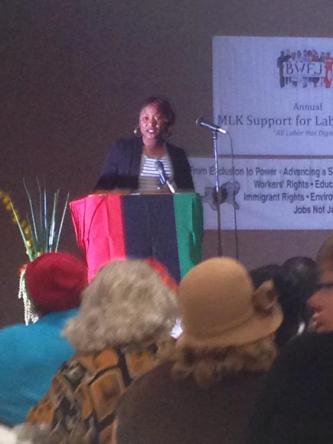“Research involving people and relationships, both individual and group, needs to be aware that essentially people relate to each other as human beings who come with different experiences, values, assumptions and expectations of self and others.”
–Listening spaces: Connecting diverse voices for social action and change by Theresa Lorenzo (NA page 131)
“Many argued that race shouldn’t make much of a difference. And we wanted, too, to write that book, not out of liberal foolishness but out of profound political commitments to class, race, and gender analyses and to ‘what should be.’ And yet, as we listened to our data, the life stories as narrated were so thoroughly drenched in radicalizing discourse that readers couldn’t not know even an ‘anonymous’ informant’s racial group once they read the transcript. Personal stories of violence and family structure, narrative style, people’s histories with money, willingness to trash (publicly) violent men and marriages, access to material resources, relations with kin and the state, descriptions of interactions with the police – were talked through ‘race.’
‘Race’ is a place in which poststructuralism and lived realities need to talk. ‘Race’ is a social construction, indeed. But ‘race’ in a racist society bears profound consequences for daily life identity, and social movements and for the ways in which most groups ‘other.’ But how we write about ‘race’ to a deeply race-bound audience worries us. Do we make the category for granted, as if it is unproblematic? By so doing, we (re)inscribe its fixed and essentialist positionality. Do we instead problematize it theoretically, knowing full well its full-bodied impact on daily lives? Yes, ‘race’ is a social construction, but it is do deeply confounded with racism that it bears enormous power in lives and communities. To the informants with whom we spoke, ‘race’ does exist – it saturates every part of their lives. How can we destabilize the notion theoretically at one and the same time as we recognize the lived presence of ‘race’?
–For Whom? Qualitative Research, Representation, and Social Responsibilities by Michelle Fine, Lois Weis, Susan Weseen, and Loonmun Wong (page 176)

This weekend I had the wonderful opportunity to hear Alicia Garza, one of the cofounders of the BlackLivesMatter movement, speak. She covered the origins of the movement, the nuanced ways that white supremacy oppresses black bodies (state sanctioned violence, the privatization of the prison system, etc), the necessity to specify BLACK lives (as opposed to all lives, because not all lives matter), etc. It was wonderful and humbling, to say the least. As I reflected on parts of her talk the following day, I could not help but think about the implications that the constructions of race have on external interactions. I often hear people say things like “if we just stop talking about race, it will go away” or “race baiting turns americans against each other” (real comments that I copied and pasted from an article about Walter Scott), but I know this is not so. It is easy to condemn others for injecting race into conversations. Or to accuse blacks for playing the race card. Or to teach your children to be “color blind.” But even as we acknowledge that race is a social construction, we cannot live as if race does not exist. Race and racism is certainly socially constructed in origin, yet it has profound material affects on individuals and our society. To answer the question, “how can we destabilize the notion theoretically at one and the same time as we recognize the lived presence of ‘race’?”, perhaps all we can do is acknowledge the social constructedness of race rhetorically while recognizing the reality of its material consequences on lives.
Furthermore, as we bring awareness in our research to the kinds of racialized interactions that can occur between people or groups, we must remember that these interactions vary depending on positionality. When thinking of the recent murder of Walter Scott, and others like him, I think about the ways that state sanctioned violence and the need to enforce the status quo manifests in black lives. It truly is an experience that is saturated in our personhood. From a young age my parents taught me about racism and police brutality. We cannot afford to live color blind lives when the social construction of our society does not exist in this way.
I will end with a comic I made today. My heart feels heavy for Scott, the others before him, and those that will come after.

i will come back to responding to your post. but wanted to reach out to let you know i do not have your living inquiry project. send it asap. thanks!